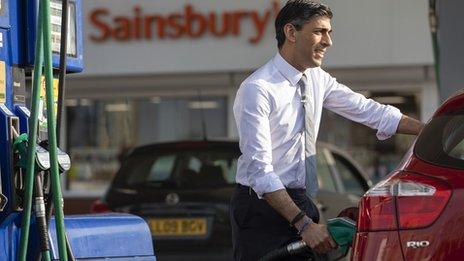Sunak resets net zero over the horizon
- Published
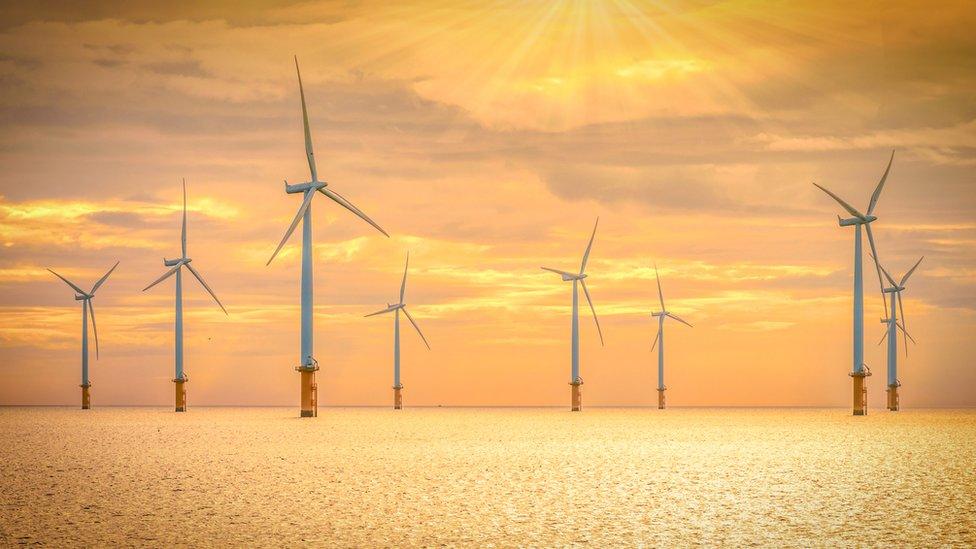
Some businesses are furious that the goalposts are being moved on carbon reduction, when they've been investing to meet government targets.
Rishi Sunak's change of tone is about politics as much as climate change - towards pragmatism and less ambitious government.
It's already being described, to the evident frustration of the prime minister, as "watering down" the commitment to reducing carbon emissions and reaching net zero. One critical business group calls it "hitting the snooze button".
The prime minister had to move swiftly if he was to grab hold of the narrative, after a leak had let it slip out of Downing Street's grasp on Tuesday evening. Rishi Sunak had a tough task of turning around first impressions of a big and controversial shift in environment policy and its impact on the economy.
It wasn't just from the environment movement, but from his own party, where there are open doubts about the PM's personal commitment to the environment and tackling climate change. Business, which used to align with Conservative policy, has been scathing.
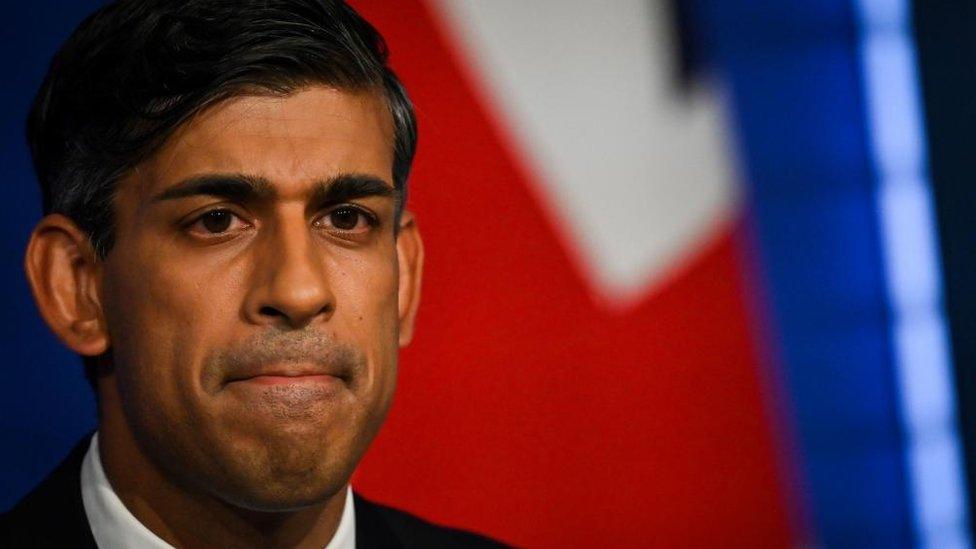
Rishi Sunak claimed he was taking a pragmatic approach
The chairwoman of Ford UK led the way in response to the leak, reflecting the £430m invested in a shift to battery vehicles, which was based on the of government policy of ending petrol or diesel car sales from 2030: "Our business needs three things from the UK government: ambition, commitment and consistency," said Lisa Brankin. "A relaxation of 2030 would undermine all three."
Relaxation is what has happened, and other businesses may be more quietly content to push carbon concerns over the short-term horizon.
That target has become 2035, in common with several European countries and US states, and the UK will have loopholes. A further target to phase out new gas or oil domestic heating boilers is also being pushed back to 2035, repeatedly citing the cost to households of £5,000 to £15,000 to improve insulation and install a heat pump.
This is "a huge setback for manufacturers who require stability and confidence in order to invest," says manufacturing industry body Make UK.
Its members have geared up investment and suppliers to hit the targets government set.
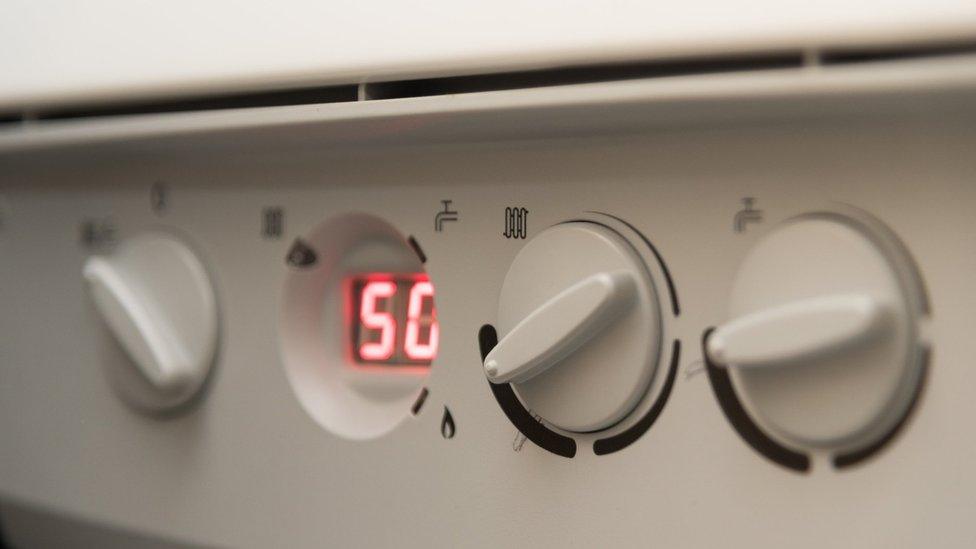
Under Rishi Sunk's plan, gas boilers may be around for some time to come
The PM defends his new position, saying those targets remain in place. What has changed is a much vaguer plan of how to hit them, with more required to do the difficult bits in the 15 years between 2035 and the 2050 net zero target.
Said Make UK: "We now run the risk of falling behind our international counterparts as a home for green technologies if we persist in frequently altering policies that impact businesses directly."
This is "a welcome step but could go further," said the free market Institute of Economic Affairs, after hearing what the prime minister had to say. It brought a reminder of the pressure on him from the Tory right, to leave net zero to the markets and innovators with new technology.
Some of what is planned will be welcomed by business, including reform of the consents process for linking wind farms to the national electricity grid.
There's still a constraint there from a large gap in the capacity required to get power to customers. He promised that there will be a plan that makes clear to energy investors where it can expect to build connectors, with a reduction in the time it takes to get planning permission.
For those who object and use the planning system to delay and frustrate those pylons, that pledge runs against the key theme of his speech - about securing consent and taking people with you.
We already know that the planning system for pylons, with all its delays, already feels to objectors like they're being ignored. They're putting pressure on MPs who have already kiboshed ministerial plans to ease restrictions on greenfield housebuilding in England.
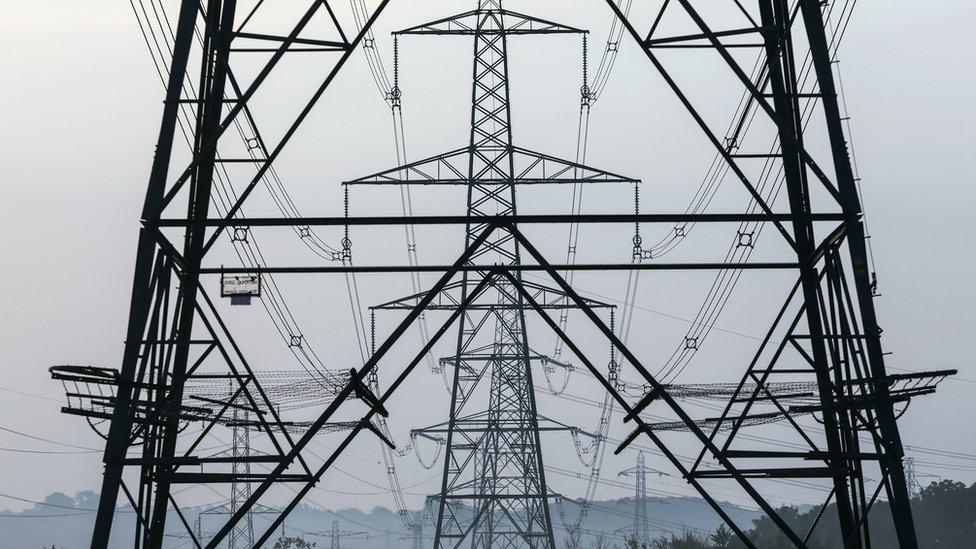
Plans to upgrade the electricity network to transmit renewable power could face local opposition
While not acknowledged in the prime minister's speech, many of the key links to new renewable energy will go through Scotland, where his planning writ does not run.
Nor will the 50% boost to household payments in the boiler replacement scheme apply in Scotland. Grants and loans are more targeted north of the border.
And the Scottish government has its own, continuing policy of ending petrol and diesel car sales in 2030, which are set to clash with the change from Downing Street.
Dividing lines
Possibly the most significant shift in the prime minister's statement was more political, angled at the general election next year.
Having had a year in Number 10, he has decided to change tack, to be Honest Rishi, in a conversation with voters aimed at long-term decisions, seeking to take the public with him on difficult issues.
This is not about politics, he said, it's about doing the right thing (implying that politics is about doing the wrong thing?)
That may be intended to imply differentiation with his political opponents. But it's as important a message to people in his own party.
The word "pragmatic" appeared repeatedly in the statement. In summing up, the prime minister said: "Consent, not imposition. Honesty, not obfuscation. Pragmatism, not ideology."
These don't look like dividing lines with Labour or the SNP, so much as divisions within his own party, and a contrast with the four Conservative leaders who preceded him.
Where this also goes is to government stepping back from the high expectations that came out of its economic interventions during the pandemic. A more conventional Conservative message is that the British people are going to have to sort out the environment, they'll do so at their own pace, and the government can't impose it on them, or do it for them.
A year on from Liz Truss's infamous mini-budget, the revelations from Laura Kuenssberg's "State of Chaos" programmes on those prime ministers, allied to the newly-published memoir by former Tory minister Rory Stewart, bring reminders of how much Rishi Sunak had to do if he was to restore a reputation for competence.
He is now trying to steer his party towards the centre ground of pragmatism and more limited ambitions.
Related topics
- Published21 September 2023
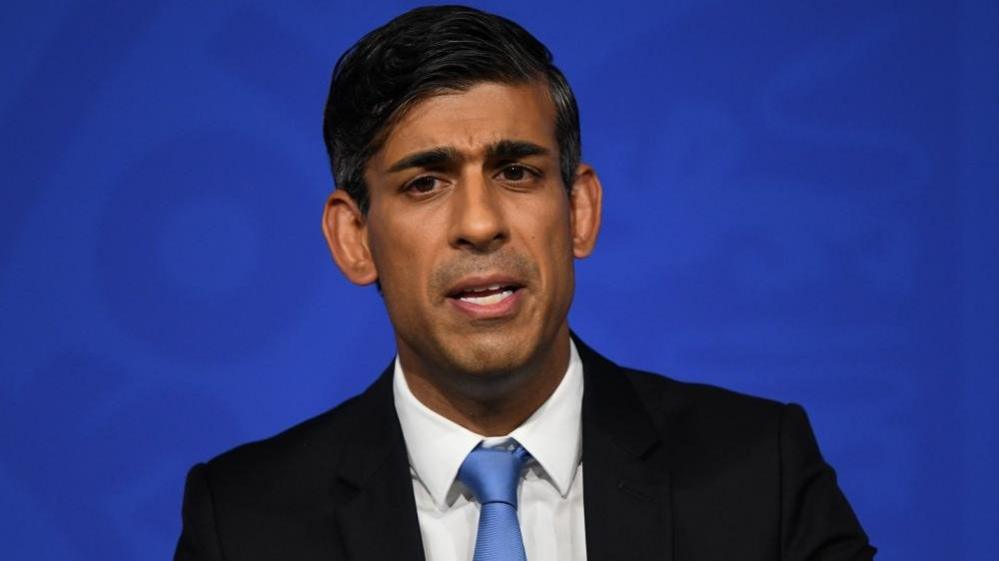
- Published20 September 2023
